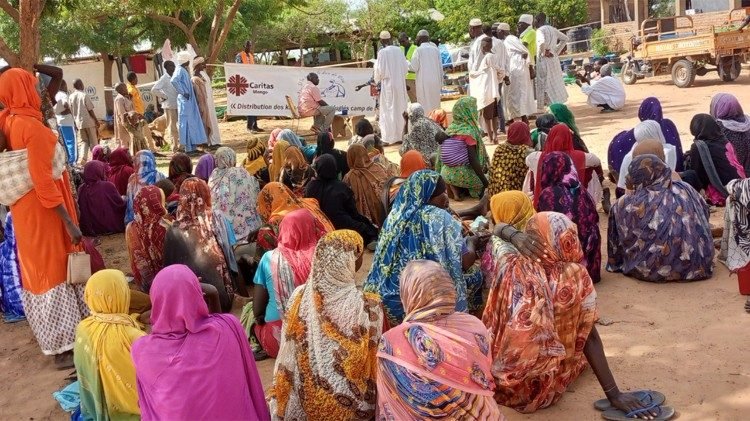The Senior Emergency Response Officer describes the food and aid Caritas is providing for the millions of Sudanese displaced by the ongoing conflict.
By Kielce Gussie
Sudan is just shy of marking a tragic two-year anniversary – the start of a brutal conflict that the United Nations has dubbed the worst humanitarian crisis in the world.
UN Spokesperson Stéphane Dujarric warned that “the humanitarian and security situation in Sudan remains dire and is worsening.” 25 million Sudanese face acute food insecurity – a number with is expected to rise even higher between June and September.
In an interview with Vatican News, Philemon Hemadi, Senior Emergency Response Officer for Caritas Sudan, described the ongoing challenges facing the millions of people who have been displaced from their homes.
Without property, money, or job
When the war began in 2023, Hemadi explained how thousands of people fled their homes “without property, without money, without a job” to escape the escalating violence in the country’s capital city of Khartoum. These people then sought shelter in schools in the cities around Khartoum. But they have continued to struggle to have the most basic human needs: food, water, and shelter.
Caritas Sudan stepped in and has been providing food and care packages to each family in the shelters. The packages consist of rice, flour, sugar, salt, and oil – basic food staples to enable families to eat for some time.
Hemadi shared that Caritas Sudan was able to support 12 parishes in the two dioceses of Khartoum and El-Obeid. In the parishes, there are common kitchens “where they cook food and distribute to anyone who can come and find something” to eat.
One mother’s story
Some 770,000 children are experiencing acute malnutrition – a life-threatening condition – in Sudan. Hemadi shared the story of one mother and her child with disabilities and how they were displaced from their homes. “She has no income, little treatment for the child, and basically nothing to depend on,” he described.
Hemadi registered her on a list of people to receive help and Caritas was able to give her some money. She later called him and expressed her gratitude for the aid. She said, “Thank you for the very little I have received because it helped me so much with my child.”
“Sudan now is in great need”
As the rainy season approaches, the UN Office for the Coordination of Humanitarian Affairs has called for action to prevent widespread famine in the country. Hemadi highlighted that the “majority of people in Sudan now are unable to produce and they have no job or source of income.” The UN Food and Agriculture Organization reported they would require more than $82 million to support farmers with seeds and other resources before the time to plant in June.
Hemadi stressed that “it is high time for the international community” to help the people in need in Sudan. The gap is high and, he said, many NGOs are offering their support. But more help is needed. “We hope that calling on the international community to come together to support Sudan and we pray that things will improve.”



